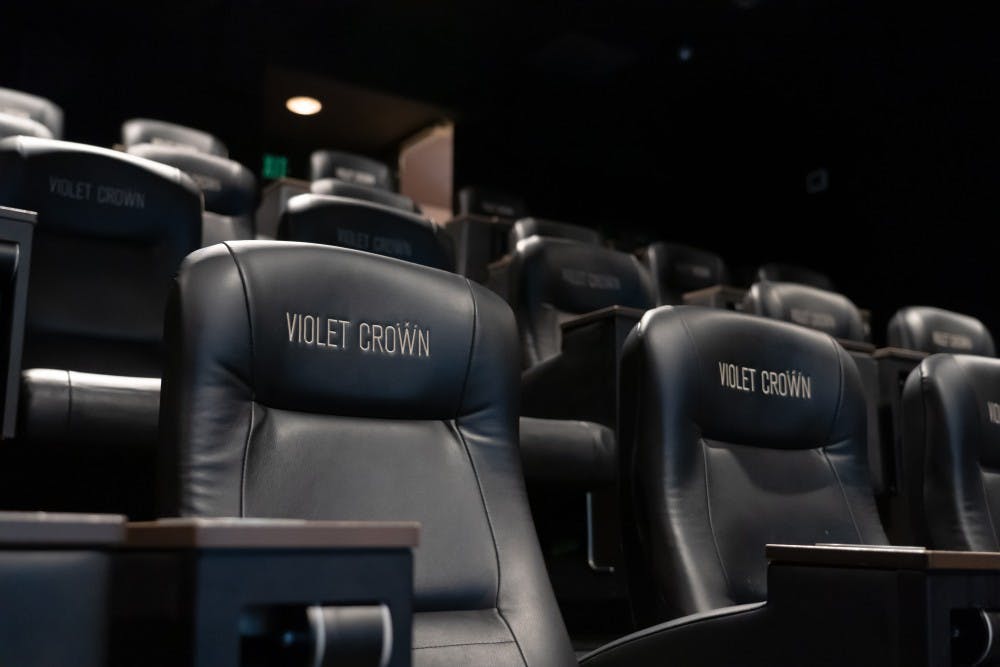The Fralin Museum of Art continued its Downtown Film Series Wednesday at the Violet Crown. The series — a collaboration with the theater that occurs throughout the year — intends to showcase “thought-provoking films that focus on artists and the arts.” For this showing, students treated to free tickets saw “Salvador Dalí: In Search of Immortality,” directed by David Pujol. The documentary ran only one hour and 45 minutes, but a series of questionable presentation decisions led to a bloated feature that failed to live up to the extraordinary footage and information about the famed surrealist painter on display.
The film opens strong — beginning with classical music set to gorgeous aerial views of Portlligat, Spain, the artist’s iconic home and now a museum house. After this pleasant visual, audiences are exposed to the structure of this documentary, consisting of the director discussing Dalí’s life in loose chronological fashion with two scholarly experts familiar with Dalí’s work. At an objective level this direct approach provides great tidbits about Dali’s life for those already engaged with the artist, but it fails to capture the immediate interest of laymen.
The overly deliberate voice-over — dubbed in English over French dialogue — explains footage and quotes audiences have already seen and makes the running time feel remarkably bloated for its nominal length. It is a far cry from a Ken Burns documentary that overlays countless fascinating interviews, archived footage and recreations into a feature quality presentation, or a unique take like Peter Jackson’s vivid “They Shall Not Grow Old” which relieves original World War I footage.
While the life of an artist may not seem to be as potentially engaging as an epic war saga, Dali’s surreal escapades and rambling philosophies are fascinating on their own. It is a shame the filmmakers were not able to harness more potential than briefly showcasing snippets of actual recordings through various stages of Dalí’s life. Most of the focus is paid to Dalí’s home the filmmakers were granted access to, which, while interesting as a specimen of his architectural expression, fails to speak to the audience’s ethos.
The first half attempts to explore Dalí’s complicated family life. Unfortunately, with little detail and accounts aside from letters from his father, it is difficult to make out a clear picture. In the latter half, an intriguing look at the artist’s lifelong partner and muse Gala provides a much-needed grounding to the hyper-imaginative and often impractical delusions of the brilliant but deceptive artist. The movie reveals that much of Dalí’s practical affairs and the business of selling his art was arranged by his wife and that the “impregnable castle” figure she tried to build was just as heightened and inspired as Dalí’s own ego.
That ego is the core of Dalí’s artwork and cult of personality in general, but this documentary does little to explain and challenge the ego aside from its provocative title. Phrasing its narrative journey and the artist’s life as being “In Search of Immortality” demonstrates Dalí’s fears of death and longing for transcendence, but these moments come after a dry and dispassionate narration of Dalí’s early life that feels incomplete. Once Dali is more established as an artist, there seems to be a broader wealth of footage and quotes for the film to fall back on.
Twisted and lucidly realized geometric architecture such as giant eggs atop castle walls, pianos thrown in the ocean, and countless other installation footage keep the middle of the film relatively engaging. On visuals alone, the “cellular” outgrowth of Dalí’s Portlligat House — a reconstruction of a Middle Ages castle at Pubol Castle — and the Dalí Theatre Museum are all splendid structures to experience. But walking through them with dull narration is not enough. Whereas Dalí traversed genres, continents, and significant moments of history in his portfolio of work, the filmmakers seem content to spend their time only in Spain.
Is there a connection between Dalí’s architecture, projected realities, and his vision for immortality? The film does not answer this question — instead, it explores the fascinating worlds and spaces the artist created superficially without providing new substance. The scenery and landscapes are evocative, but their connection to the film’s main theme is left open-ended. The experience does little to distinguish itself from a guided museum visit, a presentation format not advantaged by being done in film.
Overall, the film is a disappointingly presented look at a peculiar artist with an unfortunate first act. It somewhat redeems itself later with more comprehensive footage of the artist. Were the documentary to take presentation and cinematic risks more in line with the mind-bending work of its subject, perhaps it could have been something truly special.
As a continuation of the Fralin Downtown Film Series, this movie gives a glimpse at the kind of showcases the museum hopes to make with these student-oriented screenings. The Violet Crown is a perfect destination for these offbeat, arts-centric films — provided students have a method of transport to get there on a weeknight. Hopefully, in future showings, they will be able to demonstrate through cinema what is so inspiring about art seen in person.







